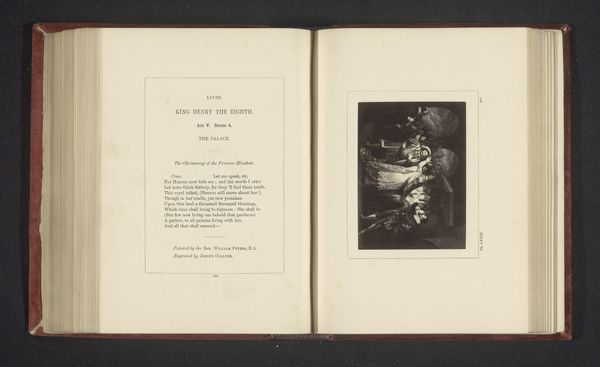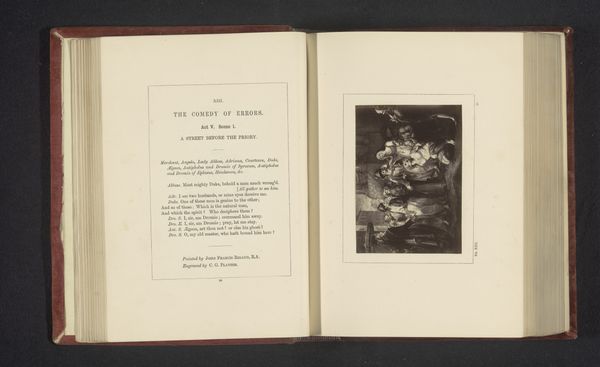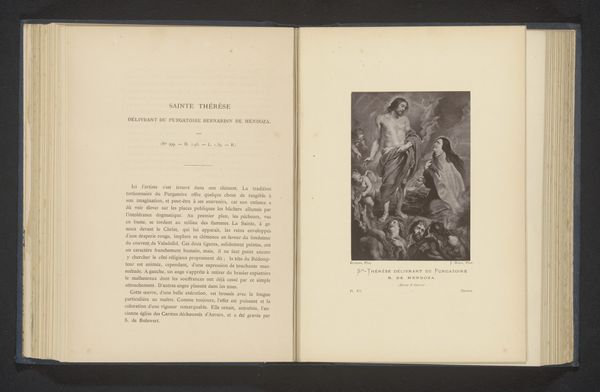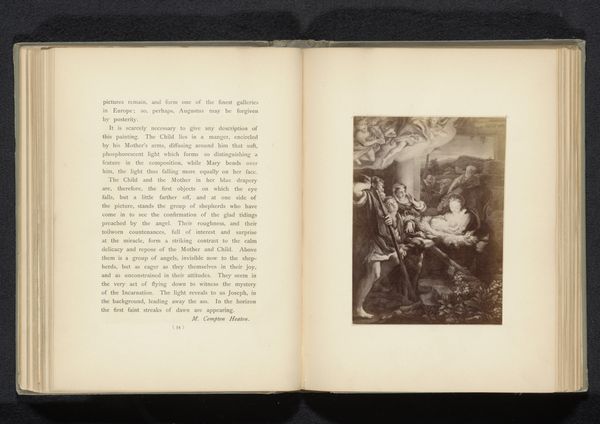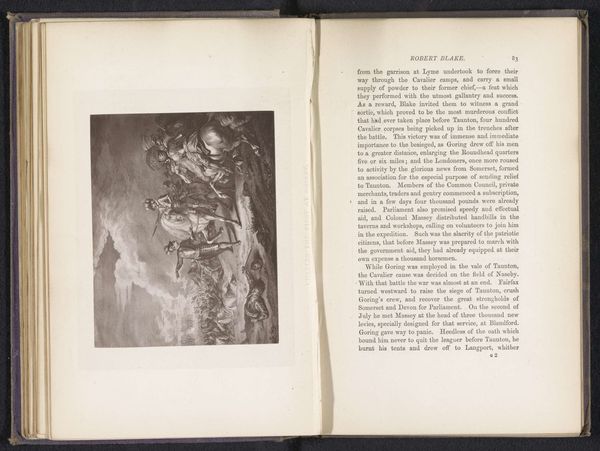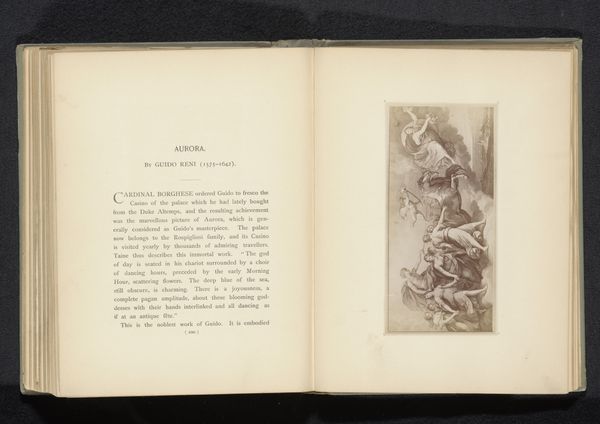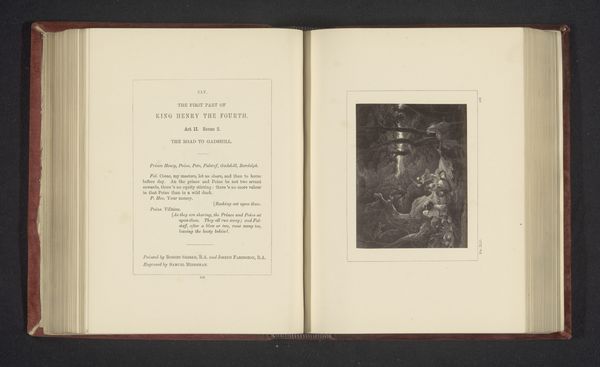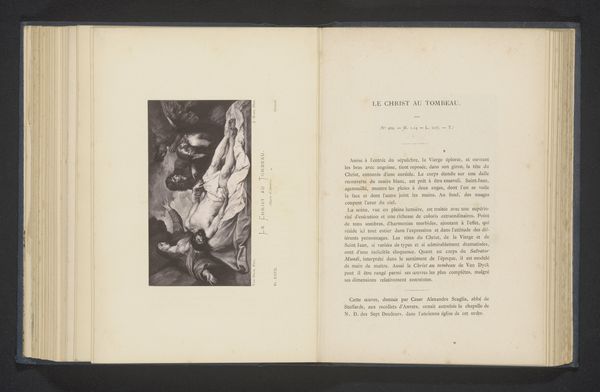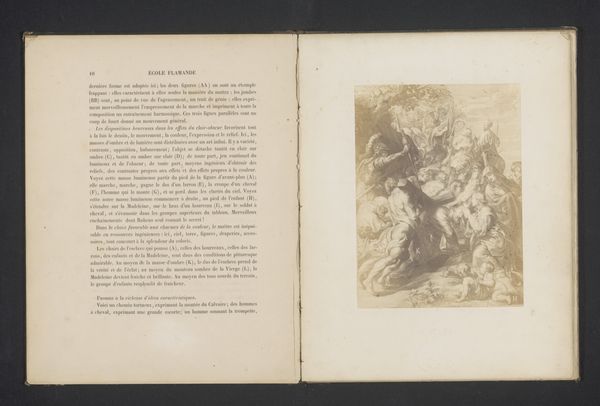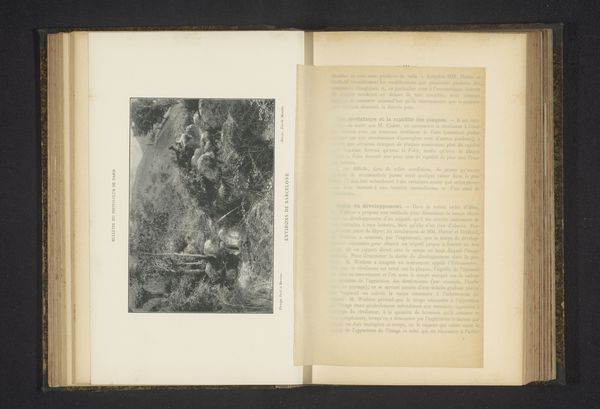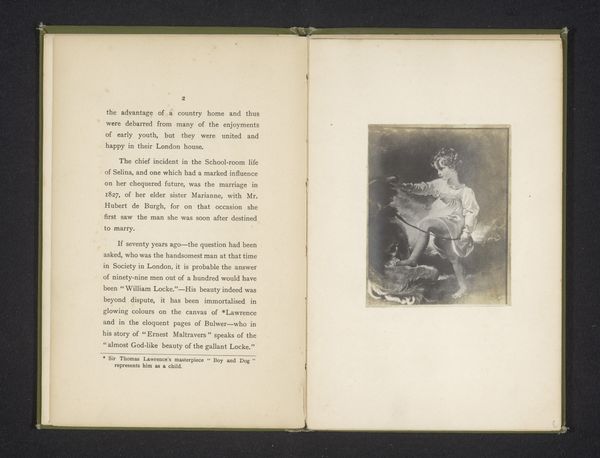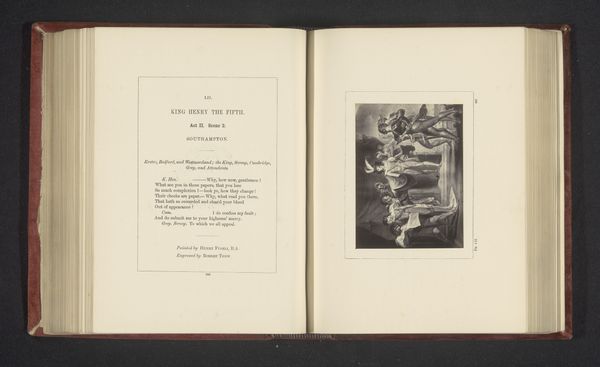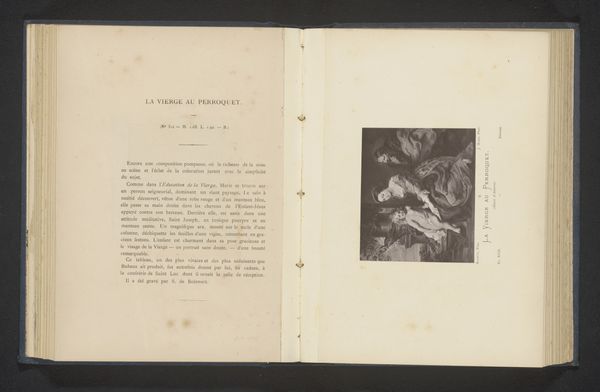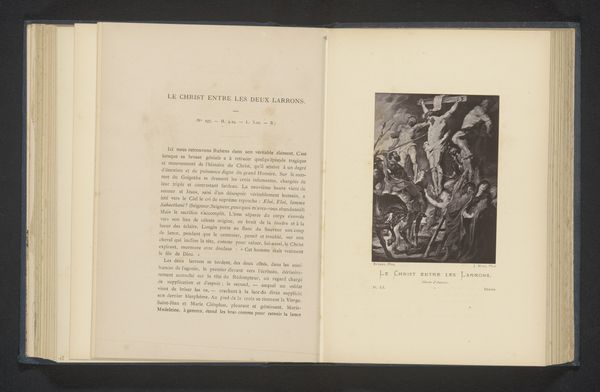
Fotoreproductie van Minerva overwint de onwetendheid door Peter Paul Rubens before 1883
0:00
0:00
alexandrefotograaf
Rijksmuseum
Dimensions: height 135 mm, width 109 mm
Copyright: Rijks Museum: Open Domain
Editor: So, here we have a gelatin silver print, a photograph by Alexandre, of Peter Paul Rubens’ "Minerva Overcoming Ignorance." It was made sometime before 1883. It's intriguing – dark, almost murky, yet hinting at something grand. What catches your eye when you look at this? Curator: Well, first, that "murkiness," as you put it, feels appropriate. Doesn't it evoke the shadows that ignorance itself casts? It reminds me how even reproductions, like this photograph of a painting, carry their own kind of truth. Notice how the photographer, Alexandre, used the light – almost weaponized it, I’d say – to illuminate Minerva, this beacon of wisdom, as she quite literally stomps on… well, on the not-so-bright ideas below. I can imagine the photographer meticulously playing with the exposure and developing time to bring out certain aspects, highlighting this symbolic victory. Editor: It's like a visual argument! You almost feel sorry for the ignorance being squashed. Why reproduce Rubens, though? Curator: That’s a terrific question! I wonder if Alexandre wasn't just capturing Rubens' mastery, but also commenting on the dissemination of knowledge in his own time. Photography was making art more accessible, wasn’t it? Think about it: wasn't he, in a way, enacting Minerva's victory himself? Editor: So, he’s making knowledge even more accessible, using this new technology? The levels to this! I’ll never look at a simple reproduction the same way. Curator: Indeed! It prompts us to consider how media shapes our perception and, possibly, even reinforces certain power structures. Always dig beneath the surface.
Comments
No comments
Be the first to comment and join the conversation on the ultimate creative platform.
